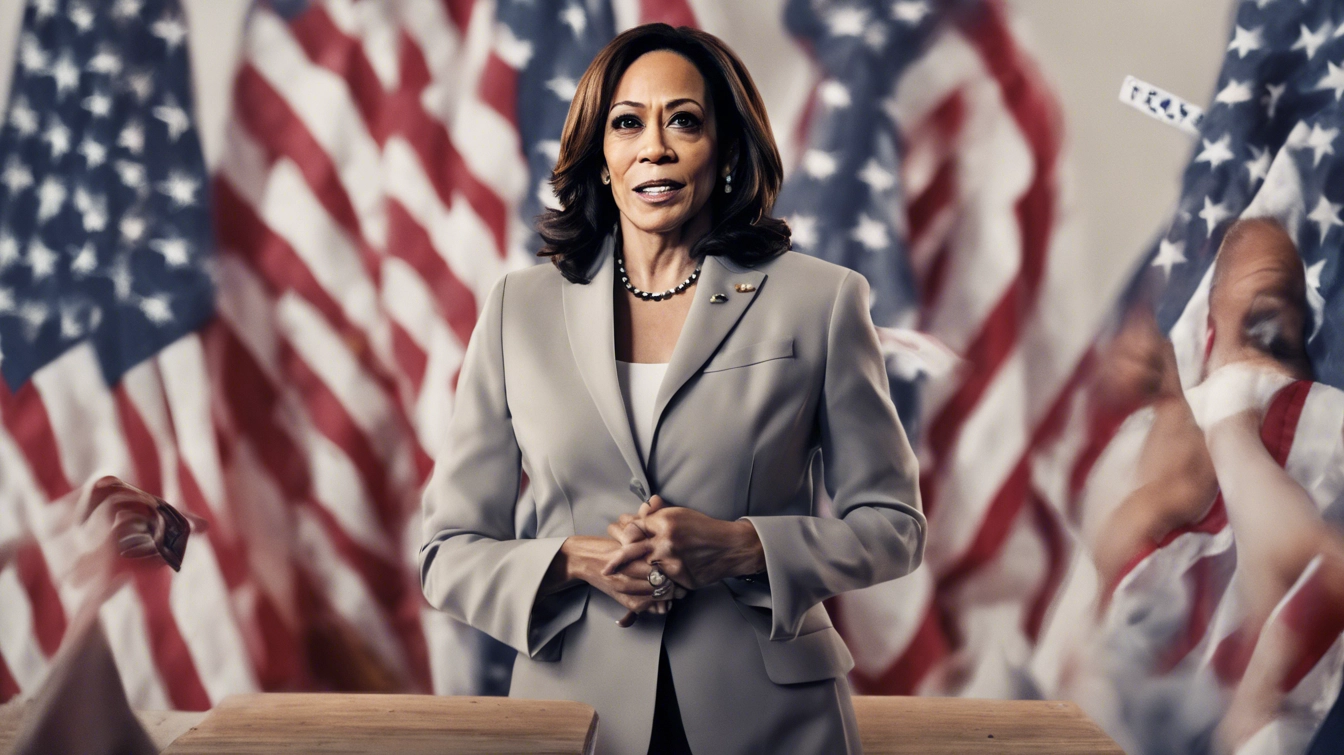As the 2024 presidential election draws closer, polls show a growing gender gap between the two major candidates—Democratic Vice President Kamala Harris and Republican Donald Trump. This gap has been attributed to various factors, but one thing is clear: gender will play a significant role in the outcome of this election.
Harris’s history-making candidacy as the first woman of color on a major party ticket has been met with enthusiasm and support from many women voters. Her nomination is a turning point in American history, and it has motivated women from all backgrounds to rally behind her campaign. This, coupled with her progressive policies and strong track record as a senator and vice president, has earned her the admiration of many.
On the other hand, Trump’s conservative platform and controversial rhetoric have caused a sharp decline in his approval ratings among women. This is not new for the former president – his 2016 campaign was plagued with accusations of sexual misconduct, and his behavior in office only further alienated women voters. As a result, many see Harris as a refreshing change from the Trump presidency and are eager to see a woman in the Oval Office.
According to recent polls, the gender gap is most apparent among young women, particularly those under the age of 45. This demographic is known to lean toward more liberal policies and has been a key factor in the Democratic Party’s recent successes. With Harris at the helm, this trend is expected to continue and may even widen the gender gap.
But it’s not just young women who are showing their support for Harris. Middle-aged and older women are also joining the “Kamala-mania” wave. Many see her as a strong, competent leader with a clear vision for the future and are drawn to her empathetic and approachable demeanor. Her roots as a working mom and dedication to fighting for women’s rights have resonated with this group, making her a formidable candidate for the White House.
However, it’s important to note that a significant portion of women still support Trump. This includes conservative women who align with his policies and those who believe in his “America First” agenda. These women will be a crucial voting block for Trump in the upcoming election, and their support could significantly impact the outcome.
As the 2024 election approaches, it remains to be seen how this growing gender gap will play out. Will Harris’s historic candidacy and strong appeal among women be enough to secure her the presidency? Or will Trump’s loyal female supporters help him reclaim the White House?
One thing is for sure—whoever emerges as the victor will significantly impact the future of gender politics in the United States. Harris becoming the first female president would not only shatter a major glass ceiling but also pave the way for future generations of women in politics. On the other hand, a second term for Trump could reinforce the notion that male, conservative leaders are the status quo in American politics.
Regardless of the outcome, one thing is clear – the gender gap in this election is significant and will have far-reaching implications for the future of our country. As we await the results in 2024, it is important to continue to have open and respectful discussions about the role of gender in politics and work towards bridging this gap for a more inclusive and representative government. Only then can we strive towards a more equal and equitable society?





